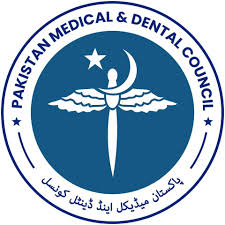Effect of Phloroglucinol on Active Phase of First Stage of Labour
Keywords:
Active phase, first stage of labour, phloroglucinol.Abstract
Introduction: The problems and hazards of prolonged labour for both mother and fetus have been recognized for many years. The mother is exposed to high risk of infections, ketosis and obstructed labour while fetus faces the danger of infection, asphyxia and excessive cranial moulding.
Objective: The objective of this study is to compare the mean duration of active phase of first stage of labour in primigravida with and without phloroglucinol at term.
Study Design: Double blind randomized controlled trial.
Setting: This study was conducted in the Department of Obstetrics & Gynaecology Unit-1, Sir Ganga Ram Hospital, Lahore.
Duration with Dates: Six months from 01-01-2010 to 30-06-2010.
Subjects and Methods: A total of 200 primigravidas at term in active phase of first stage of labour were selected for this study. One group was given phloroglucinol at 0, ½ hour, 1 hour, 1½ hour interval 40mg intravenous (I/V) and other group was not given phloroglucinol and effects were recorded on predesigned proforma. All data pertaining to labour events, outcome that was measured in duration of first stage of labour were recorded on questionnaire.
Results: The mean age of the patients in phloroglucinol group was 26.1±2.6 years and in control group was 26.2±3.3 years. The mean weight of the patients in phloroglucinol group was 70.1±4.9 kg and in control group was 69.7±3.9 kg. The mean duration of pregnancy of the patients in phloroglucinol group was 38.4±1.4 weeks and in control group was 38.4±1.4 weeks. The mean duration of active phase of first stage of labour labour of the patients in phloroglucinol group was 282.8±23.4 minutes and in control group was 410.6±66.8 minutes.
Conclusion: It is concluded from this study that duration of active phage of first stage of labour is significantly shorter in patients given phloroglucinol than those who not given phloroglucinol.
Downloads
Published
How to Cite
Issue
Section
License
The Journal of Fatima Jinnah Medical University follows the Attribution Creative Commons-Non commercial (CC BY-NC) license which allows the users to copy and redistribute the material in any medium or format, remix, transform and build upon the material. The users must give credit to the source and indicate, provide a link to the license, and indicate if changes were made. However, the CC By-NC license restricts the use of material for commercial purposes. For further details about the license please check the Creative Commons website. The editorial board of JFJMU strives hard for the authenticity and accuracy of the material published in the journal. However, findings and statements are views of the authors and do not necessarily represent views of the Editorial Board.

















